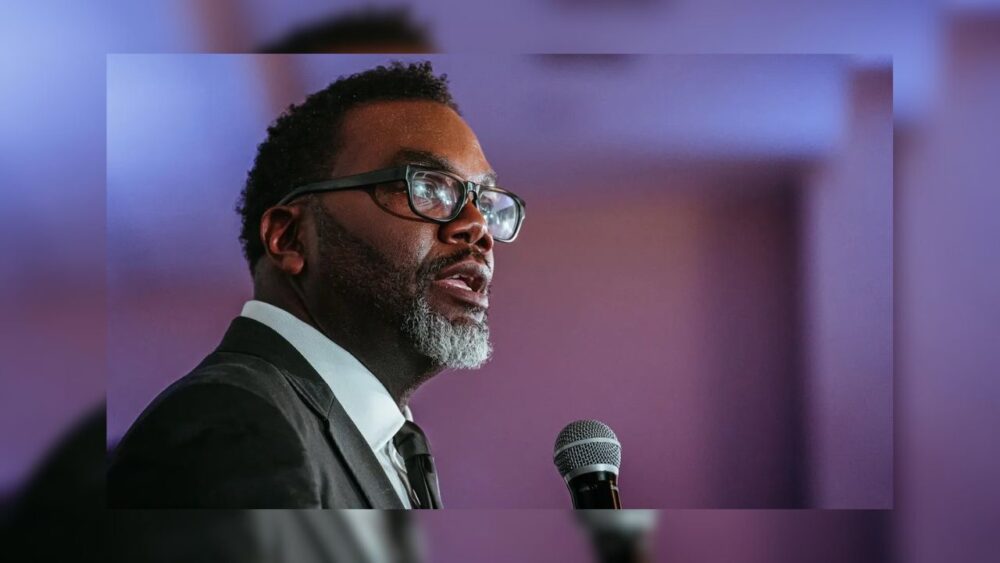Chicago Mayor Brandon Johnson unveiled his 2026 budget proposal Thursday, introducing new taxes on large corporations and social media companies to address the city’s $1.15 billion deficit.
Branded as “The Protecting Chicago Budget,” the proposal includes a $21-per-employee head tax on large businesses and a $0.50-per-user fee on social media platforms with more than 100,000 Chicago users. Johnson said the plan is designed to protect city services without raising property, grocery, or garbage taxes.
“It acknowledges a harsh reality that I think, that we all can agree on. We are living in unprecedented times,” Johnson said, according to BizPac Review. “We can’t respond to Trump’s cuts and the attacks on our city with speeches and press conferences. We must take concrete action.”
The mayor’s office said the plan would fund programs supporting youth jobs, mental health care, affordable housing, and violence prevention, while establishing a $100 million Community Safety Fund to expand youth diversion, domestic violence services, and mental health support for first responders.
“We are asking large corporations and big tech companies that have made trillions of dollars to pitch in a little bit more,” Johnson said.
Critics Call It a ‘Tax on Jobs’
Business leaders quickly pushed back.
“Mayor Johnson’s proposed 2026 budget relies on placing a tariff on jobs in Chicago and implementing policies that will further inflationary burdens on Chicago businesses and residents,” the Chicagoland Chamber of Commerce said in a statement. “We need to focus on long-term strategies to grow and create jobs, not quick fixes and job-killing taxes like the head tax and cloud tax.”
The proposed measures also drew national criticism.
After Geiger Capital posted on X calling the plan “a punishment for hiring people,” U.S. Sen. Ted Cruz (R-TX) responded, writing, “A penalty for creating a job. A subsidy for being homeless. What could go wrong?”
A penalty for creating a job.
A subsidy for being homeless.
What could go wrong? https://t.co/c7hNs8c3tw
— Ted Cruz (@tedcruz) October 16, 2025
Johnson defended his proposal, saying public safety and long-term stability require continued investment.
“To those who say this is a fee that is anti-business, I say that investing in building a much safer city is the most pro-business investment,” Johnson said.
The Chicago City Council must approve the proposal before it can take effect in 2026.


